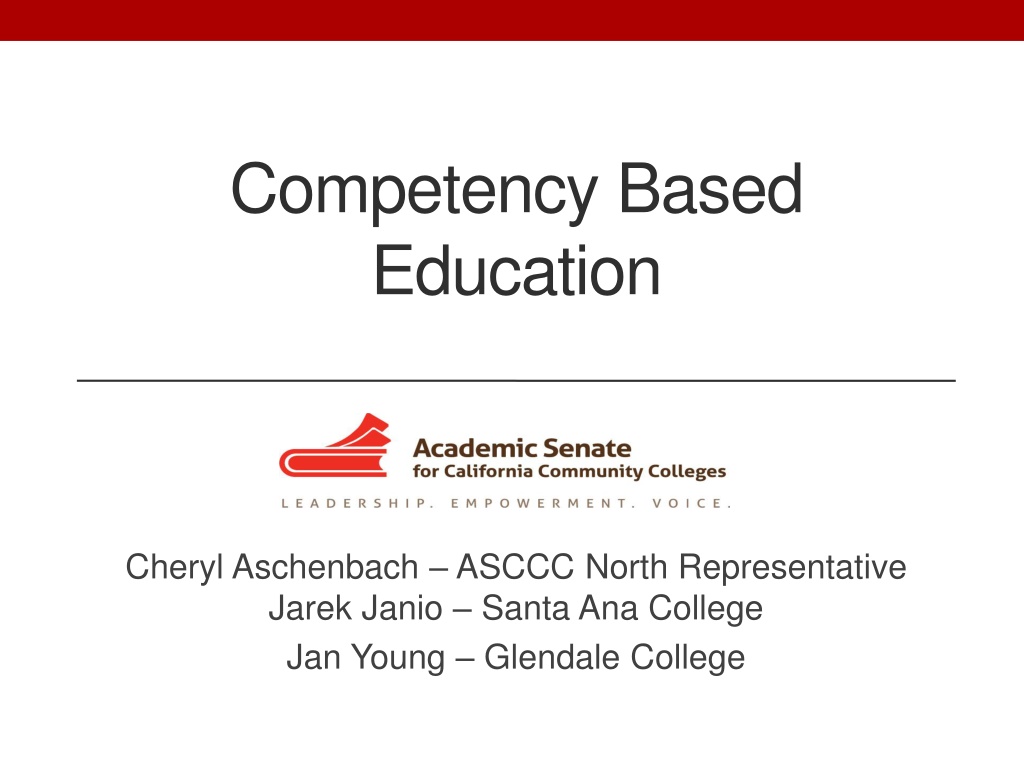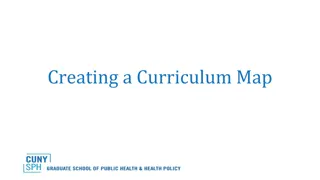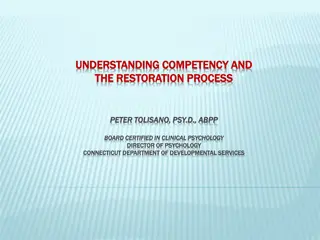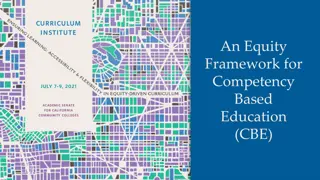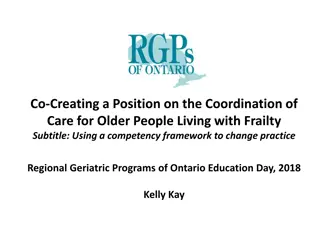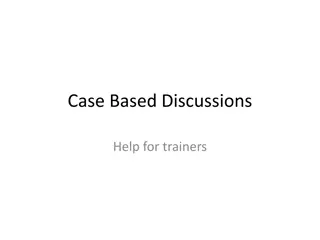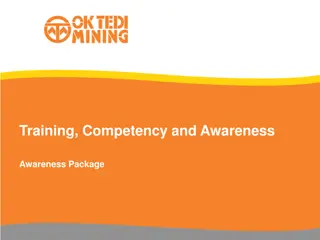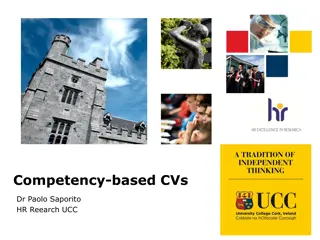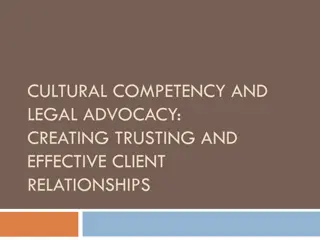Understanding Competency-Based Education in Practice
Competency-Based Education (CBE) allows students to progress based on mastery of skills rather than seat time. It offers personalized learning, efficient outcomes, and focuses on employer needs. Examples include CTE courses, noncredit pathways, and open entry/exit programs. The approach emphasizes competency mastery, changing paradigms in education, and potential for further implementation.
- Competency-Based Education
- CBE in Practice
- Personalized Learning
- Mastery-Based Advancement
- Education Paradigm
Download Presentation

Please find below an Image/Link to download the presentation.
The content on the website is provided AS IS for your information and personal use only. It may not be sold, licensed, or shared on other websites without obtaining consent from the author. Download presentation by click this link. If you encounter any issues during the download, it is possible that the publisher has removed the file from their server.
E N D
Presentation Transcript
Competency Based Education Cheryl Aschenbach ASCCC North Representative Jarek Janio Santa Ana College Jan Young Glendale College
Overview What is competency based education (CBE)? What does CBE look like in practice? How can you consider CBE in your discipline?
Competency-Based Education The competency-based education (CBE) approach allows students to advance based on their ability to master a skill or competency at their own pace regardless of environment. This method is tailored to meet different learning abilities and can lead to more efficient student outcomes.
Competency-Based Education Competency-based or Outcomes-based Advancement based on mastery of outcomes rather than seat time or credit hours Mastery demonstrated through assessments
Competency-Based Education Changing paradigm: Credit hour content mastery Focus on teaching focus on learning Time is constant/learning is variable time is variable/learning is constant Greater focus on employer input regarding knowledge, skill, and aptitude (KSA) needs of future employees
Competency-Based Education Colleges already do some CBE Open entry/open exit courses in CTE and noncredit Credit by Exam
Examples of CBE Noncredit Math and writing labs Accounting (Glendale) Medical Front Office (Glendale) High School Diploma classes (Glendale) Keyboarding (Glendale) CTE Certificates Nursing Welding Noncredit pathways Health Care Pathway: Nursing Assistant Medical Billing and Coding Introduction to Medical Assistant General Medical Office Clerk
Competency-Based Education Can more be done? Can CBE be done in census classes? Can more CTE education be CBE? How can we accomplish this?
Implementing CBE Identifying outcome competencies is key all supporting learning objectives must be identified and sequenced within a program and courses Objectives may be used rather than outcomes usually require demonstration of more discrete skills or knowledge
Implementing CBE Identify and reduce or eliminate ineffective structures, practices, and expectations that may have been historically justified but are now impeding the efficiency of student learning Minimum hours & unit requirements Minimum internship/externship hours requirements Required skills practice regardless of current competence
Implementing CBE Design classroom and lab experiences with pre- assessment opportunities Based on outcomes or objectives, determine the appropriate assessment(s) and level of mastery Pre-assessments may be the same as post-assessment, or the two may vary for greater demands on students Pre-assessments may be integrated into early classroom activities or assignments rather than formalized as separate assessment opportunities Instruction based on students learning, rather than faculty teaching. Establish achievement benchmarks Establish program exit criteria
QUESTIONS? THANK YOU! Cheryl Aschenbach: caschenbach@lassencollege.edu Jarek Janio: Janio_Jarek@sac.edu Jan Young: jyoung@glendale.edu info@asccc.org
